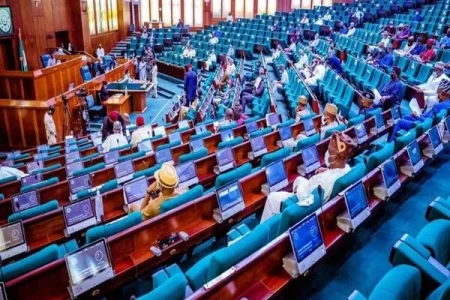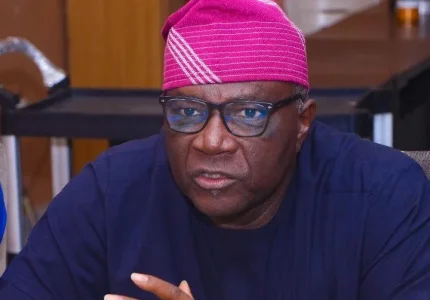
A controversial draft bill seeking to establish regional governments in Nigeria has gone viral, sparking heated debates about political reforms and decentralization of power.
A draft bill aimed at restructuring Nigeria's governance system by establishing regional governments has ignited intense debate online, reigniting the longstanding discourse on the need for political reform in Africa's most populous nation. The controversial proposal, which has garnered significant traction on social media, has reignited discussions about devolving power from the federal government to newly created regional entities.
Titled "A Bill for an Act to substitute the annexure to Decree 24 of 1999 with new governance model for the Federal Republic of Nigeria," the draft bill seeks to introduce a new "Constitution of the Federal Republic of Nigeria New Governance Model for Nigeria Act 2024." The document, which has been trending online, was drafted by Dr. Akin Fapohunda, a private individual unaffiliated with the Nigerian legislature.
The draft bill argues that the current 1999 Constitution, which established Nigeria's federal system, was "handed down by the then military government without the express consent of the people." It proposes a shift toward a regional governance model, allowing ethnic blocs within states to aggregate or disaggregate as "provinces, divisions, and districts" while maintaining control over their affairs.
However, the House of Representatives has distanced itself from the draft bill. "The Committees on Rules and Business and Constitution Review have confirmed that there is no such bill before them," said Akin Rotimi, the House spokesman.
Francis Waive, the Chairman of the House Committee on Rules and Business, also stated that the draft bill had not been officially presented to the committee, which is responsible for listing bills for consideration.
Despite the lack of official backing, the draft bill has ignited a firestorm of reactions from various stakeholders, including politicians, experts, civil society groups, and citizens across different regions. Proponents argue that a regional system could address longstanding issues such as centralization of power, resource allocation, and ethnic tensions, while critics raise concerns about the potential for further fragmentation and instability.
Dr. Fapohunda, the author of the draft bill, told our correspondent that he retired from public service as a director in the Presidency. "The President this week returned us to the old national anthem. At independence, Nigeria embraced a regional system of government. So, I felt we could also revisit the past and return to regionalism," he said.
As the online discourse continues to intensify, legal experts and constitutional scholars have weighed in on the legality and feasibility of the proposed changes, highlighting the complex legislative process required for such significant constitutional amendments.
The draft bill has once again thrust the issue of political restructuring into the spotlight, reigniting a long-standing debate about the most effective governance model for Nigeria's diverse population and the challenges it faces.




